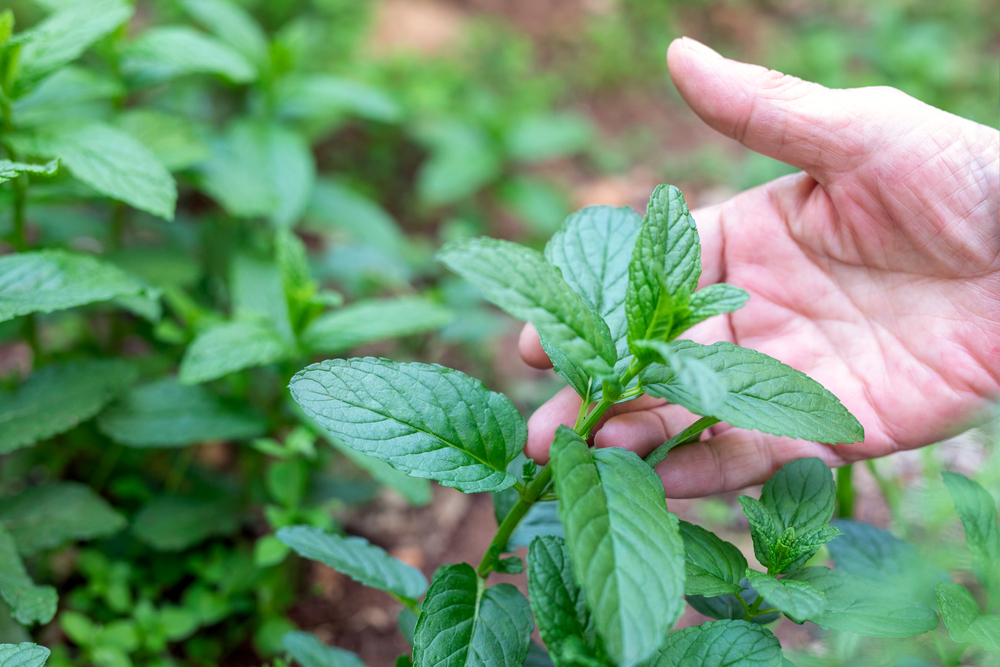The cultivation of spearmint (Mentha spicata) in Egypt holds a significant place in the country’s agricultural landscape. Known for its refreshing aroma and myriad of applications in culinary, medicinal, and cosmetic industries, spearmint cultivation presents a lucrative opportunity for Egyptian farmers.

- Historical Perspective: Spearmint has been cultivated in Egypt for centuries, with historical records indicating its presence in ancient Egyptian civilization. Its cultivation thrived along the banks of the Nile River, benefiting from the fertile soil and favorable climate of the region. Ancient Egyptians revered spearmint for its medicinal properties, using it to alleviate digestive issues and as a flavoring agent in food and beverages.
- Ideal Growing Conditions: Egypt’s climate and geographical features provide an ideal environment for spearmint cultivation. The Nile Delta region, with its nutrient-rich soil and moderate temperatures, serves as the primary hub for spearmint cultivation. The plant thrives in well-drained soil and requires ample sunlight to flourish. Additionally, the availability of water from the Nile River and modern irrigation techniques ensure consistent growth throughout the year.
- Cultivation Techniques: Farmers in Egypt employ various cultivation techniques to optimize the growth and yield of spearmint. Propagation is typically done through seeds or vegetative methods such as stem cuttings. Once established, spearmint plants require regular maintenance, including watering, fertilization, and weed control. Farmers often utilize organic farming practices to minimize environmental impact and meet the increasing demand for organic spearmint products.
- Economic Importance: The cultivation of spearmint contributes significantly to Egypt’s economy, providing employment opportunities and generating revenue through domestic consumption and exports. Egyptian spearmint is sought after worldwide for its superior quality and distinctive flavor profile. The export of spearmint essential oil, extracted from the plant’s leaves, is a major source of foreign exchange earnings for the country. Additionally, spearmint cultivation supports ancillary industries such as food processing, pharmaceuticals, and cosmetics.
- Cultural Significance: Spearmint holds cultural significance in Egypt, deeply rooted in culinary traditions and folk medicine. It is a key ingredient in popular Egyptian dishes like tea, salads, and desserts, imparting a refreshing taste and aroma. Moreover, spearmint tea, known locally as “nana,” is a staple beverage enjoyed by Egyptians across all ages. Beyond its culinary uses, spearmint is valued for its medicinal properties, with traditional remedies using it to alleviate ailments ranging from indigestion to respiratory issues.
- Challenges and Future Prospects: While spearmint cultivation in Egypt presents numerous opportunities, it also faces challenges such as fluctuating market prices, competition from other mint-growing regions, and environmental concerns. Climate change and water scarcity pose threats to sustainable cultivation practices, necessitating innovative solutions and adaptation strategies. However, with advancements in agricultural technology and a growing global demand for natural products, the future of spearmint cultivation in Egypt remains promising.
Conclusion:
The cultivation of spearmint in Egypt exemplifies the harmonious blend of tradition, innovation, and economic prosperity. As a versatile crop with cultural significance and widespread commercial appeal, spearmint continues to play a pivotal role in Egypt’s agricultural sector and global trade. Through sustainable practices and strategic investments, Egyptian farmers can harness the full potential of spearmint cultivation, ensuring its legacy for generations to come.
